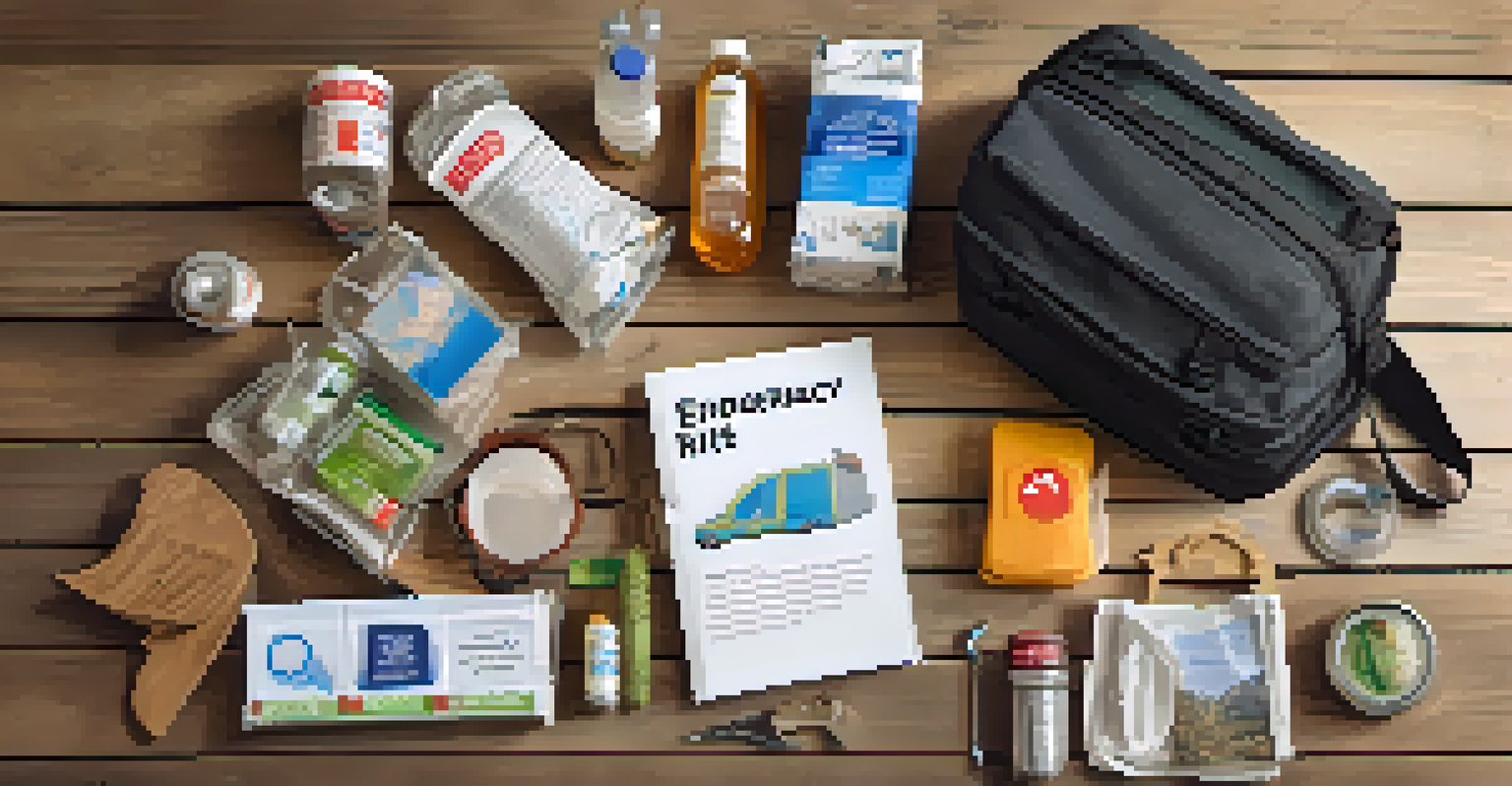Essential Travel Tips During Natural Disasters and Crises

Stay Informed: Monitor Alerts and Updates
When traveling, it’s crucial to keep an eye on local news and weather alerts. Many regions prone to natural disasters, like hurricanes or earthquakes, provide timely updates via news channels and social media. Using apps that offer real-time notifications can also help you stay ahead of any potential threats.
In the midst of chaos, there is also opportunity.
Consider checking the local government's website or reputable news outlets for the latest information. These sources often provide critical details on evacuation routes, shelter locations, and emergency contacts. Staying informed can make all the difference in your safety during a crisis.
Lastly, don’t rely solely on your phone for updates. In case of power outages or network failures, having a battery-operated radio can be an invaluable resource. This way, you can ensure you’re receiving information even when technology lets you down.
Create a Flexible Itinerary for Unforeseen Events
Traveling during uncertain times means having a flexible itinerary is key. You might have plans to visit a specific location, but if disaster strikes, you should be prepared to change your course. Keeping your travel plans adaptable allows you to seek safer routes or alternative destinations.

For instance, if you’re planning a beach vacation during hurricane season, consider researching inland attractions or activities that could serve as backups. This way, you'll have options ready if you need to change your destination at the last minute.
Stay Informed on Alerts
Monitoring local news and weather updates is essential for ensuring your safety while traveling.
Always remember to confirm your accommodations and transportation options. Many hotels and airlines will have policies for cancellations or changes due to emergencies, so being proactive can save you stress and money later on.
Pack a Travel Emergency Kit
An emergency kit can be your lifeline during a natural disaster. Make sure to pack essentials like water, non-perishable food, a flashlight, and first-aid supplies. Additionally, including items like a whistle, multi-tool, and extra batteries can prepare you for various scenarios.
By failing to prepare, you are preparing to fail.
Don’t forget personal items such as necessary medications and important documents. Keeping copies of your ID, travel insurance, and emergency contacts in a waterproof bag can ensure you have access to vital information when you need it most.
Lastly, consider packing a portable phone charger or solar-powered charger to keep your devices functional. Communication is critical during emergencies, and staying connected can help you find support and resources.
Know Your Surroundings: Identify Safe Locations
Before you travel, familiarize yourself with the area’s emergency services and safe locations. This could mean knowing where the nearest hospital, fire station, or police department is. Understanding your surroundings can help you make informed decisions quickly if a crisis arises.
Additionally, identify potential evacuation routes and safe zones, such as community centers or designated shelters. During a natural disaster, knowing where to go can save precious time and keep you out of harm's way.
Prepare a Flexible Itinerary
Having a flexible travel plan allows you to adapt to unexpected events, such as natural disasters.
It’s also wise to connect with locals or fellow travelers to gain insights into the region’s risks and safety measures. Locals often have firsthand knowledge of the best places to stay safe during emergencies.
Stay Connected: Inform Family and Friends
In times of crisis, keeping communication lines open with family and friends is essential. Before you embark on your journey, share your itinerary and contact information with loved ones. This way, they can check in on you and have a way to reach you if something goes wrong.
Using messaging apps that work offline or have low-data options can be helpful, especially if service is disrupted. Regularly updating your loved ones about your location and situation can ease their worries and keep them informed.
Consider designating a family member or friend as your emergency contact. This person can coordinate efforts and relay information if communication becomes challenging due to a disaster.
Follow Local Guidelines and Emergency Protocols
Every region has its own set of emergency protocols during natural disasters. Familiarizing yourself with these guidelines can greatly enhance your safety. For example, if you’re in an area prone to earthquakes, knowing how to ‘Drop, Cover, and Hold On’ can protect you during tremors.
Listen closely to local authorities and follow their instructions, whether it’s evacuating the area or seeking shelter. They are trained to handle emergencies, and adhering to their guidance can significantly reduce risks.
Pack an Emergency Kit
An emergency kit filled with essential supplies can be a lifesaver during a crisis.
Also, pay attention to local evacuation routes and emergency shelters. These designated areas are often equipped with necessary resources and personnel to assist you during a crisis.
Remain Calm and Think Clearly
In the face of a natural disaster, staying calm is essential. Panic can cloud your judgment and lead to poor decision-making. Take deep breaths and focus on the actions you need to take, such as locating your emergency kit or finding safe shelter.
Remember that your safety is the priority. If you must evacuate, do so quickly but safely. Following your predetermined plans can help you stay organized and aware of your surroundings.

Lastly, reach out for help if needed. Whether it’s connecting with fellow travelers or local authorities, asking for assistance can make a significant difference. Teamwork and communication can help mitigate the impacts of a crisis.